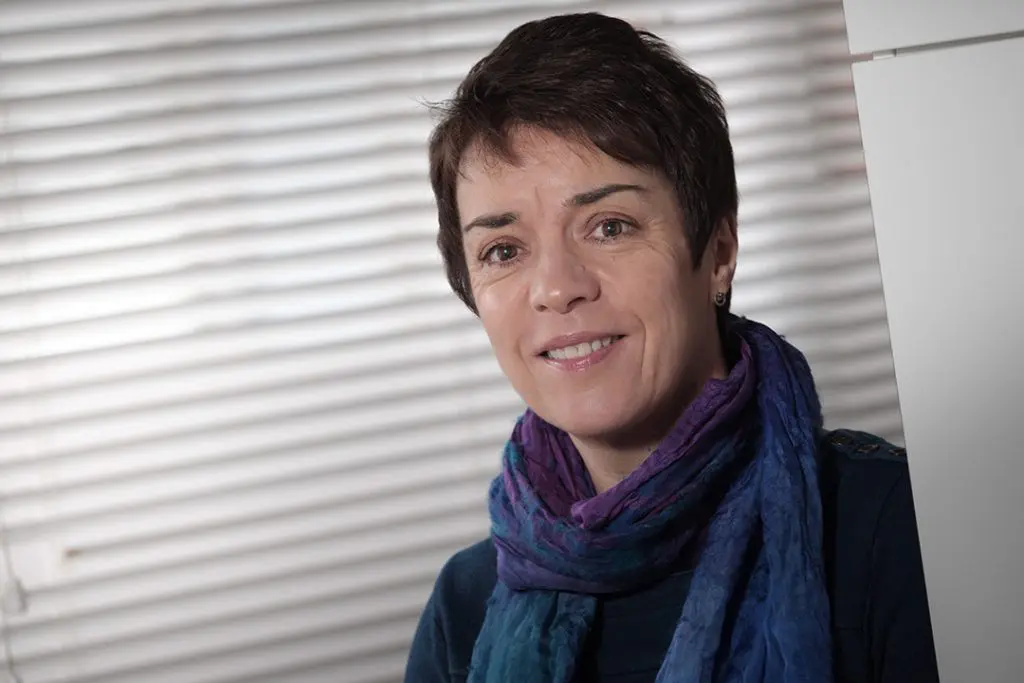29th January 2020
Early Voices was a national professional development and training programme for health visitors, written and delivered by The Communication Trust (TCT). Funded by Big Change, the programme was designed to impact the families that health visitors work with. The impact of the programme was externally evaluated by LKMCo.
Hear from Maxine Burns, Lead Speech and Language Advisor at I CAN / TCT, about the programme and its impact.

Maxine Burns, Lead Speech and Language Advisor at I CAN / TCT
The programme
Early Voices began in December 2017 with plans to train 60 health visitors across 60 different areas. Between then and December 2019, when the programme concluded, it supported these 60, in two separate cohorts, to become ‘Communication Leaders’ in their localities.
Following an initial day’s training from TCT, the health visitors were armed with two bespoke and evidenced cascade training sessions for them to deliver to their colleagues and wider early years networks. Cascade sessions were designed deliberately to be delivered in two chunks so that learning could be first introduced and then revisited and consolidated at the second session.
Communication Leaders were also asked to share a specially designed strategies leaflet with parents so that families were more aware of five basic principles that could more effectively support their children’s early communication skills, particularly in the 0-2 phase.
In addition, these 60 Communication Leaders received a fully funded place on a Level 3 Award in speech, language and communication, a qualification that would help them deepen and extend their own personal knowledge over time.
Our long-term goal was that this combination of activity and study would help Early Voices Communication Leaders to be the lynchpin in an area, helping transform the way that professionals within those localities supported families with early language development.
In late 2018 Public Health England commissioned the iHV to deliver a national programme of speech language and communication training for health visiting, this complemented the Early Voices professional development and training in raising the profile of the importance of early language development.
What did they do?
Communication Leaders, of course, went back to their areas and cascaded training sessions widely to colleagues and their wider workforce networks, often gathering positive indicators of knowledge change amongst recipients of the training.
They shared information with their families, often using the leaflet as a focus but also dropping in bite sized pieces of information about supporting speech, language and communication development at as many contacts as possible.
They also committed considerable time and energy in their busy work schedules, and very often in their own time, to complete the at times challenging level 3 award; using this to build a really solid platform of confidence in their knowledge.
Did it work?
The hard work and commitment of Communication Leaders was most certainly worth it!
Our external evaluators found that, in both cohorts of health visitors, their knowledge of speech, language and communication increased, even from a relatively high starting point. They spoke specifically about how up to date evidence-informed training gave them the confidence to share knowledge widely.
More importantly perhaps, the frequency with which they spoke about the fundamental skills of speech, language and communication development also increased. From discussing this with parents at some visits, more of our Communication Leaders were discussing these skills at all of their visits and also doing so with increased confidence. Conversations with colleagues, often those who had participated in the Public Health England SLC Health Visitor training, also increased in frequency and depth so that “everyone was talking about talking!”
Sharing the learning
In order to share and amplify the learning towards the end of the project, we held two ‘action learning sets’ where participants had an opportunity to talk together about the varied challenges and successes they’d had during the programme and how working through Early Voices had helped change their practice.
These conversations brought much of the learning to life and very clear themes emerged from what participants spoke about. The series of four case studies we produced with this raw material, one for each theme, tell a range of interesting implementation stories which we hope will be of interest to many other health visitors and family nurse practitioners.
Some conversations were filmed and thanks to the permission given by our Communication Leaders and their managers, you can also hear directly from them on some themes. Why not grab a quick cuppa and take a look on our website here. Perhaps their stories of change will inspire developments for you or your area.


